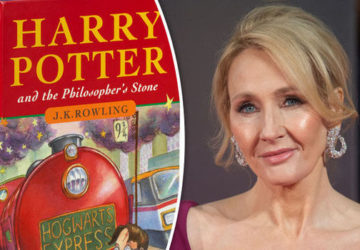The Internet is a powerful tool, and a particularly useful one for writers, who have a world of information at their fingertips when researching a story. But there’s a reason writers should always rely on primary research sources – or, failing that, that they should be able to confirm that information picked up elsewhere on the Internet can be reliably and accurately traced back to a primary source. Tracey Hawthorne points out why.
What’s wrong with Wiki?
A few of my students have asked me why they can’t use the Internet as a primary research source. Surely, they say, if an intelligent assessment of the information a Web search throws up reveals it to appear trustworthy, it should be usable?
The problem with the Internet, however, is that it’s an utterly anarchic tool, open to use and misuse by anyone who has a computer, a connection and a little bit of techno savvy. Despite endless efforts by various well-meaning groups to control unsuitable content – pornography, for instance, or sites that promote terrorism – the Internet is still wide-open in terms of content, and who creates that content and who uses it.
For writers, this was illustrated by the publication earlier this year, in the UK’s The Guardian newspaper, of two quotations attributed to the late French composer Maurice Jarre. Appearing in Jarre’s March obituary, the quotes read, ‘My life has been one long soundtrack. Music was my life, music brought me to life,’ and ‘Music is how I will be remembered. When I die there will be a final waltz playing in my head, that only I can hear.’
The journalist, who had been commissioned by the newspaper to write the obituary at short notice, used the Internet, and more specifically Wikipedia, for his primary research. The quotes, innocuous as they are, certainly appeared to be the kind of thing a musician may have said.
Bu they weren’t. They had been added to the Wikipedia page about the composer by a 22-year-old Irish university student – who later said he did this for the specific purpose of showing that journalists do use Wikipedia as a primary research source, and how this can adversely affect accurate newspaper reporting.
And affect it, it did. Compounding the hoax, the fake quotes used in The Guardian were picked up and re-used in good faith by several other print and online publications.
It was an interesting example of why not to rely on Wikipedia for primary research – or, if you as a writer do choose to use Wikipedia, how scrupulous you should be in making sure that the information can be traced back to a reliable primary source. (Incidentally, the fake quote wasn’t attributed on Wikipedia – there was no footnote to advise readers where it had come from.)
Check and Re-check Your Sources
There’s another moral to this story: the importance of always citing the source of your information when using material from other sources, whether you get these from print publications or online. In the case of the Jarre quote (which wasn’t attributed to Wikipedia in The Guardian‘s obituary), the hoax didn’t come to light until a month later, when the university student who had inserted it emailed the newspaper to tell them what he’d done.
About the Author:
Tracey Hawthorne has written features and columns for numerous leading publications in SA, including CAPE etc, Cosmopolitan, Fairlady (including ‘Urban Exile’, a column that ran for 13 issues), Femina, Getaway, GQ (for which she was books editor for 32 issues), House and Leisure, JSE, Men’s Health (for which her feature ‘Bone Chilling’ was a Mondi nominee), O, Prive, Proud!, Psychologies, Shape, Style, You.
Tracey has also written for Business Day, Sunday Times, Sunday Life (Sunday supplement), has written and/or contributed to over 10 fiction and non-fiction books, and edited upwards of 30 other non-fiction books, including over 20 for Struik Publishers.
Tracey is a tutor for the Magazine Journalism Course at SA Writers’ College (www.sawriterscollege.co.za)
Photo credit: flickr – Sergio Savaman Savarese













